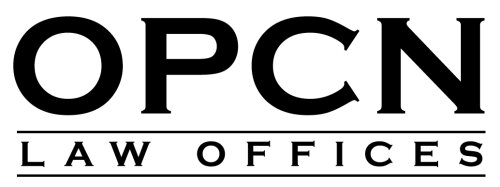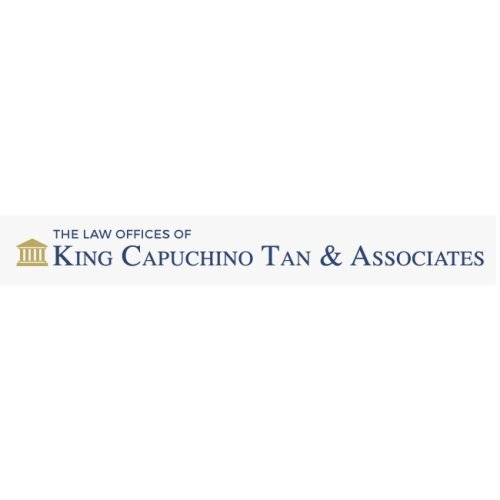Best Oil, Gas & Energy Lawyers in Quezon City
Share your needs with us, get contacted by law firms.
Free. Takes 2 min.
List of the best lawyers in Quezon City, Philippines
About Oil, Gas & Energy Law in Quezon City, Philippines
Oil, Gas & Energy Law in Quezon City, Philippines refers to the legal regulations and principles that govern the exploration, extraction, production, and distribution of oil, gas, and other forms of energy in the city. These laws aim to ensure the responsible and sustainable development of the oil, gas, and energy sector while protecting the rights and interests of the parties involved.
Why You May Need a Lawyer
Engaging a lawyer who specializes in Oil, Gas & Energy Law in Quezon City may be necessary in various situations, including:
- Entering into contracts or agreements related to oil, gas, or energy exploration, extraction, or production.
- Resolving disputes or conflicts with oil, gas, or energy companies, contractors, or other parties.
- Negotiating lease agreements or conducting due diligence for property or land transactions involving oil, gas, or energy resources.
- Seeking legal advice on environmental regulations and compliance pertaining to oil, gas, or energy operations.
Local Laws Overview
Oil, Gas & Energy Law in Quezon City is primarily governed by national laws and regulations, including:
- The Philippine Oil and Gas Exploration and Development Act, which sets out the framework for petroleum exploration and production activities.
- The Renewable Energy Act, which promotes the development, utilization, and commercialization of renewable energy sources.
- The Environmental Impact Assessment System, which regulates the environmental impact of oil, gas, and energy projects.
Frequently Asked Questions
1. Can individuals or companies own oil, gas, or energy resources in Quezon City?
No, under Philippine law, oil, gas, and energy resources belong to the state. However, individuals and companies can obtain rights to explore, extract, and produce these resources through contracts or agreements with the government.
2. What permits or licenses are required for oil, gas, or energy operations in Quezon City?
Various permits and licenses may be required, such as exploration permits, service contracts, environmental compliance certificates, and other relevant clearances. The specific requirements depend on the nature and scale of the operations.
3. How are disputes resolved in the oil, gas, and energy sector in Quezon City?
Disputes in the oil, gas, and energy sector in Quezon City can be resolved through negotiation, mediation, arbitration, or court litigation, depending on the terms of the contract and the preferences of the parties involved.
4. What are the environmental regulations for oil, gas, or energy projects in Quezon City?
Oil, gas, and energy projects in Quezon City are subject to environmental regulations, including the requirement for environmental impact assessments, adherence to pollution control measures, and compliance with sustainable development principles.
5. Are there any incentives or support for renewable energy projects in Quezon City?
Yes, the Philippine government provides incentives and support for renewable energy projects, including financial incentives, tax exemptions, and streamlined approval processes. The details and eligibility criteria can be obtained from relevant government agencies.
Additional Resources
For more information and assistance regarding Oil, Gas & Energy Law in Quezon City, you can refer to the following:
- Department of Energy, Philippines - https://www.doe.gov.ph
- Energy Regulatory Commission - https://www.erc.gov.ph
- Environmental Management Bureau - https://emb.gov.ph
Next Steps
If you require legal assistance in Oil, Gas & Energy Law in Quezon City, it is advisable to consult with a qualified lawyer specializing in this field. They can provide personalized advice based on your specific circumstances and help you navigate the legal complexities involved.
Lawzana helps you find the best lawyers and law firms in Quezon City through a curated and pre-screened list of qualified legal professionals. Our platform offers rankings and detailed profiles of attorneys and law firms, allowing you to compare based on practice areas, including Oil, Gas & Energy, experience, and client feedback.
Each profile includes a description of the firm's areas of practice, client reviews, team members and partners, year of establishment, spoken languages, office locations, contact information, social media presence, and any published articles or resources. Most firms on our platform speak English and are experienced in both local and international legal matters.
Get a quote from top-rated law firms in Quezon City, Philippines — quickly, securely, and without unnecessary hassle.
Disclaimer:
The information provided on this page is for general informational purposes only and does not constitute legal advice. While we strive to ensure the accuracy and relevance of the content, legal information may change over time, and interpretations of the law can vary. You should always consult with a qualified legal professional for advice specific to your situation.
We disclaim all liability for actions taken or not taken based on the content of this page. If you believe any information is incorrect or outdated, please contact us, and we will review and update it where appropriate.















